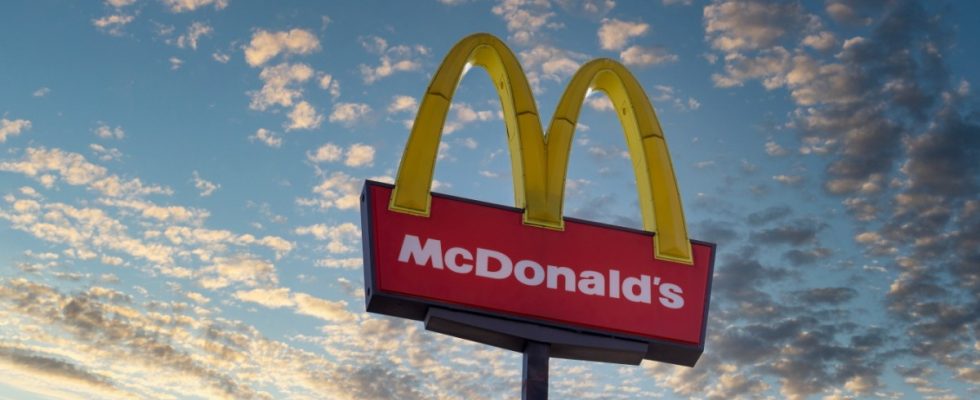With the promise of a quick, warm meal, McDonald’s has become a global corporation. Order, pay, and the Big Mac is on the tray. But behind the scenes at the fast food chain, some things take a little longer – especially when a lot of money and tough legal questions are involved.
The company and an entrepreneur have been fighting for the McDonald’s branches in Ingolstadt for three and a half years. It’s a bizarre argument about a question that you don’t even ask yourself as a restaurant guest: Who really owns the golden M?
On Wednesday, the Munich Higher Regional Court heard a lengthy civil case involving Carla Princess of Hesse, who wanted to take over several branches in the city of 140,000 against the wishes of McDonald’s. In the end, a settlement was reached that cost McDonald’s eleven million euros, but gave McDonald’s back control of its own name in Ingolstadt.
You have to know: Most of the approximately 1,400 burger shops in Germany are not operated by McDonald’s itself, but by so-called franchisees. They operate as independent entrepreneurs with their own staff, pay license and lease fees to the parent company and run the restaurants exactly as McDonald’s contractually stipulates. Generally a good deal for both parties.
Until 2020, long-time McDonald’s partner Otto Prinz von Hesse was head of the four Ingolstadt branches. After his sudden accidental death in May, his ex-wife and business partner Carla von Hessen intended to continue running the restaurant as heiress. But McDonald’s refused and planned to pay out the family. The group reserves the right to do so in its strict license agreements. Hesse didn’t want to accept that.
Carla Princess of Hesse (left) fought with McDonald’s for three and a half years.
(Photo: Hannes Magerstaedt/Getty Images)
As a result, a small war broke out between the entrepreneur and the burger giant, in which it was never entirely clear who was actually in charge behind the counter. Sometimes the McDonald’s headquarters announced that they would take over the stores completely, and sometimes Hesse banned the managers from entering the premises. The power struggle also had bizarre consequences for customers. For example, when Hesse declared “digital fasting weeks” last winter and only accepted cash – because the card payments flowed into a trust account set up by McDonald’s. Many guests were angry, and a court ended the theater weeks later.
The Munich district court made it clear two years ago that the attempt to force one’s way into the McDonald’s world had little chance of success. It dismissed Hesse’s lawsuit and criticized her “ill-considered reactions that completely ignored the contractual provisions in the franchise agreements.” The entrepreneur nevertheless appealed. Industry experts were already speculating that she was trying to increase the severance payment. Carla von Hessen was not available to speak to the SZ.
Without comparison, says Neumair, “one could really argue for decades.”
On Wednesday morning, the Higher Regional Court was the next instance to indicate that the chain’s franchise agreements were clear. “I don’t give you high hopes,” said presiding judge Annette Neumair at the start of the hearing. Instead, she pushed for an agreement between the deeply divided parties. It is “economically the only right thing to do if you end everything. With one stroke.” Without a comparison, says Neumair, “one could really argue for decades.”
But for now the back and forth continued. McDonald’s offered the entrepreneur a severance payment of 8.2 million euros and wanted to take over the locations in Ingolstadt on January 1, 2024. “It’s better to have an ending with horror than a horror without end,” said McDonald’s lawyer Karsten Metzlaff. After a short break in consultation, Hesse’s lawyer demanded 12.7 million euros and a handover of the branches on April 1st. When the McDonald’s lawyers indicated that they wanted to meet in the middle “at a little over ten million,” those involved withdrew again.
While the lawyers worked in secret for hours on the text of the contract for a settlement, the smell of mulled wine spread across the court corridors, the judiciary’s Christmas party. At some point the melody of Last Christmas also penetrated the building. The song is about disappointed love, at one point saying: “My God, I thought I could trust you.”
The fast food relationship between McDonald’s and Carla von Hesse is also coming to an end. She has to hand over the branches to the group on December 31st.

